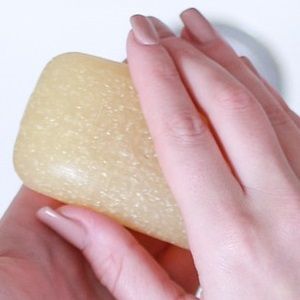How to nutritionally support your immune system
If your immune system is weakened or not functioning correctly, you can be at greater risk of infections from viruses and bacteria. As well as following general hygiene practices, including washing your hands thoroughly and regularly, so you are less likely to pick up a virus, there are certain nutrients you should make sure you’re getting enough of to support your immune system, according to this WorldHealth.net article.
In addition to regular exercise to stay fit and healthy, the article highlights several vitamins and minerals that are important for a healthy immune system including vitamin D, zinc and echinacea. Because sunlight is reduced during the winter months, it can be difficult to obtain enough vitamin D, for example, which can lead to winter colds and flu, making dietary sources and supplements sometimes a more reliable way of securing the right nutrients.
There are several reasons it can be difficult to avoid catching a cold completely during the winter; as more people have to spend more time indoors and the close proximity makes the transfer of germs more likely, exercise is less enticing in cold wet weather and there are fewer hours of daylight to obtain vitamin D, but there are some measures we can take against this. The general advice is, make sure you maintain good hygiene, exercise regularly and get the right balance of nutrients in your diet.
Green tea and exercise for liver support
A recent study, as reported by Science Daily, has suggested that a combination of exercise and green tea extract could be the answer to maintaining a healthy liver. The trial looked at the combination of green tea extract and regular exercise on subjects on a high fat diet and saw that they had just a quarter of the lipid deposits in their livers when compared to the control group.
This means that the combination of green tea extract and regular exercise could have a positive effect on the livers of those who are overweight and consume a high fat diet.
Speaking of the research, Joshua Lambert, associate professor of food science, said, “We think the polyphenols in green tea interact with digestive enzymes secreted in the small intestine and partially inhibit the breakdown of carbohydrates, fat and protein in food.”
While the results are promising, Lambert has said that more research is needed to prove the dual effects of green tea extract and exercise.
The link between diet and workplace productivity
A health official has called for more research in the exploration of a link between nutrition and workplace productivity. Quoted in NutraIngredients-USA, Adam Drewnowski, PhD, director, Centre for Public Health Nutrition Professor of Epidemiology, University of Washington, said, “given that optimal nutrition benefits both physical and mental health, interventions to improve diet quality ought to have a measurable impact on the productivity of the labour force.”
After referencing several studies and surveys, Drewnowski makes it clear that employee nutrition is of huge consequence to employers.
He presented his findings in the academic journal Nutrition Reviews, in which he examined the evidence that links workplace dietary interventions and productivity and said that, “there is a need for randomised controlled trials of supplement use in the workplace, with both health and productivity as outcomes.” It is hoped that this can better inform companies of the role nutrition plays in their employees’ wellbeing and productivity.
Share your thoughts
Agree with the findings in this week’s Nutrition News? Share your thoughts with us on Facebook and Twitter.
 Alison is Director and Founder of Metabolics who writes about Metabolics updates, events and natural healthcare. Her experience and passion for natural supplements and healthcare comes from her years of experience as a practising osteopath, having founded Metabolics in her search for high quality, natural products in her own work. Alison has been a qualified and practising Osteopath since 1981 and regularly gives seminars on a range of healthcare subjects to the wider practitioner community helping share her knowledge and experience.
Alison is Director and Founder of Metabolics who writes about Metabolics updates, events and natural healthcare. Her experience and passion for natural supplements and healthcare comes from her years of experience as a practising osteopath, having founded Metabolics in her search for high quality, natural products in her own work. Alison has been a qualified and practising Osteopath since 1981 and regularly gives seminars on a range of healthcare subjects to the wider practitioner community helping share her knowledge and experience.




